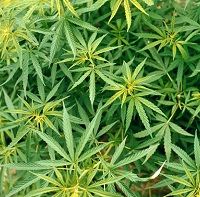NYU Cannabidiol Trial Results Published
Refining data presented earlier this month at the American Epilepsy Society meeting, NYU Langone researchers published a report on medical marijuana and intractable epilepsy in Lancet Neurology.

Refining data and conclusions presented recently at the American Epilepsy Society meeting in Philadelphia, Orrin Devinsky, MD of the NYU Langone Medical Center’s Comprehensive Epilepsy Center published a study on medical marijuana and treatment-resistant epilepsy.
Writing in Lancet Neurology, Devinsky and colleagues wrote that their findings “suggest that cannabidiol might reduce seizure frequency and might have an adequate safety profile in children and young adults with highly treatment-resistant epilepsy.” They found the marijuana derivative was “effective in reducing monthly seizure frequency by a median of 36.5 percent.”
Their prospective, open-label, expanded-access trial was conducted at 11 US centers. The cannabis was in the form of cannabidiol (Epidiolex/GW Pharmaceuticals) in a 100 mg per mL sesame oil based solution administered orally or by a gastric tube.
Patients were aged 1 to 30 years and had intractable childhood-onset epilepsy with four or more countable seizures with a motor component per four-week period. All were receiving antiepileptic drugs.
Some were also eating special diets and some had vagus nerve stimulators. Patients who had already tried cannabis—based therapy were excluded.
Seizures were tracked by parents or caregivers through seizure diaries before and after cannabidiol was given.
Of 214 patients enrolled, 11 stopped treatment before 12 weeks for a variety of reasons, including one who died.
Ultimately, the intention to treat efficacy group numbered 137 patients.
Post-hoc analysis showed variability in responses of individual seizure types to cannabidiol treatment; the median change in total seizures was —34・6% (IQR —66・7 to—9・8), with the greatest reduction occurring in patients with focal seizures (n=42; —55・0%, IQR —97・3 to —4・4) or atonic seizures (n=32; —54・3%, —91・5 to 25・7), followed by tonic seizures (n=65; —36・5%, —71・8 to 22・6) or tonic-clonic seizures (n=89; —16・0%, —60・1 to 35・3). Two (2%) patients were free of all seizure types over the entire 12 weeks.
The cannabidiol product is being evaluated in trials at other institutions.
Devinsky has begun a randomized controlled trial to see if his team’s results hold up.